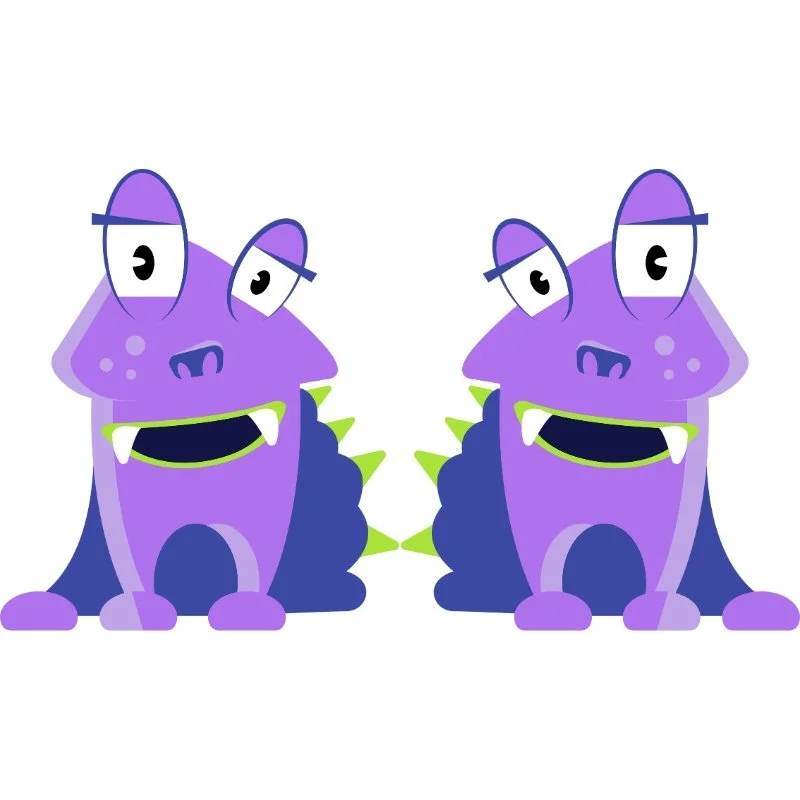Echo – The Perseveration and Rumination Monster
Echo is one of the Visiting Neuro Monsters. Echo represents the looping cycle of perseveration and rumination that traps the mind in repeated thoughts, conversations, or scenarios. Known as the Perseveration and Rumination Monster, Echo embodies the echoing replay of what was said, what could have been done differently, or what might go wrong. Within the Neuro Monsters Universe, Echo reveals how the nervous system can become locked in cycles of mental repetition that drain energy, create anxiety, and prevent resolution.
The Symbolic Role of Echo
Echo symbolizes the endless reverberation of thought that cannot quiet down. Its presence shows up when you replay a conversation over and over, when your mind rehashes worries without moving to solutions, or when you feel stuck circling the same thought for hours or days. Symbolically, Echo represents the trap of overprocessing, where the mind’s attempt to make sense of things only amplifies confusion. By naming Echo you begin to notice when thought is no longer productive but has become repetition.
Echo often appears as a shadowy figure whose voice repeats endlessly, bouncing off unseen walls. Its words are distorted and overlapping, symbolizing the way rumination magnifies noise without bringing clarity. Facing Echo with emotional neutrality allows you to see repetition not as truth but as a signal of overload.
Perseveration and Rumination in the Brain
In neuroscience terms Echo is tied to the default mode network, the prefrontal cortex, and the anterior cingulate cortex. The default mode network becomes overactive during self-referential thought, generating cycles of inward focus. The prefrontal cortex struggles to disengage from a problem, keeping attention locked on unresolved issues. The anterior cingulate cortex heightens error monitoring, pushing the system to keep reviewing details even when no solution emerges.
Echo symbolizes this loop where brain systems meant for reflection become hijacked into overprocessing. The nervous system mistakes repetition for progress, reinforcing the cycle of rumination.
The Protective Instinct Behind Echo
Although it can feel exhausting, Echo’s instinct is protective. Rumination is the nervous system’s way of trying to solve problems, prevent mistakes, and make sense of uncertainty. The purpose is to ensure safety by anticipating outcomes and avoiding regret. The challenge is that Echo keeps the loop running long after it is useful, draining energy instead of producing clarity. By seeing the protective purpose behind Echo you can begin to shift rumination into reflection guided by choice rather than compulsion.
Training with Echo
Training with Echo means learning how to notice repetition and gently redirect thought into constructive patterns. Cognitive Neuro Therapy emphasizes naming rumination neutrally and practicing grounding actions that break the loop.
When Echo appears you can practice the following steps. Pause and acknowledge the repetition without judgment. Name it as rumination rather than as necessity. Redirect attention to the present moment by engaging the senses, moving the body, or speaking thoughts aloud to interrupt the cycle. Set time limits for reflection, then shift focus intentionally to an external task or calming activity.
Over time Echo begins to soften not by being silenced but by being guided. You learn that repetition is a signal of unfinished processing, not proof of danger. By approaching Echo with compassion, you transform rumination into mindful reflection. Echo becomes a reminder that thoughts are not infinite truths but passing reverberations that can be redirected toward resolution and peace.


